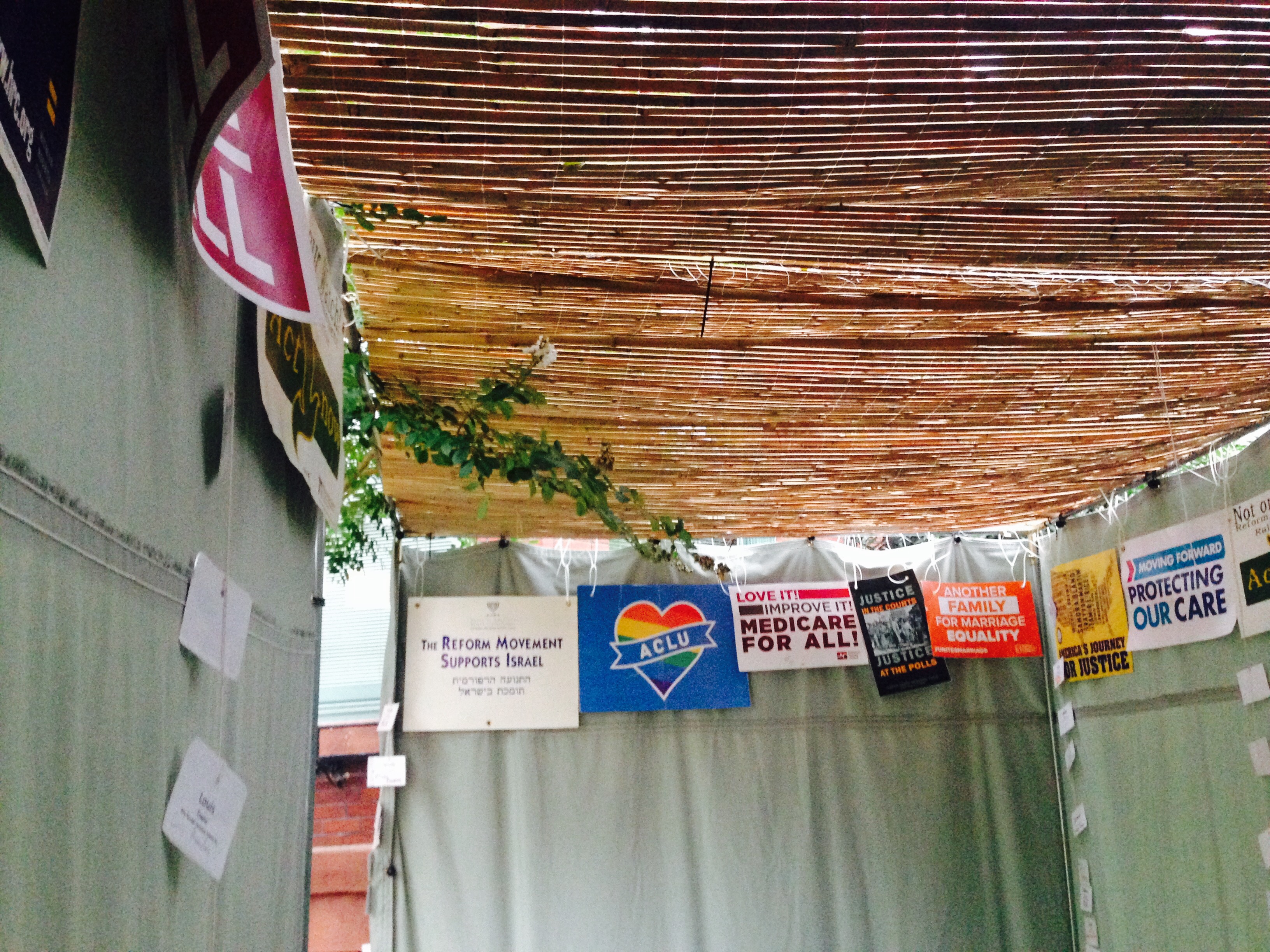
On Sukkot, we celebrate the harvest. The Zohar teaches that “when the people of Israel leave their homes and enter the sukkah for the sake of God’s name, they merit to welcome the Divine Presence there, and all the seven shepherds descend from Gan Eden and come to the sukkah as their guests” (Zohar, Emor 103a). Therefore, in addition to many neighborhood guests, we also invite seven holy guests, Ushpizin, one for each night to complete the mitzvah of hachnasat orchim, welcoming of guests. Traditionally these holy guests have included Abraham, Isaac, Jacob, Moses, Aaron, Joseph and David, and now also include Sarah, Rebecca, Rachel, Leah, Miriam, Deborah, Esther and Ruth.
At synagogue with my family yesterday, our rabbi discussed how we can make our sukkah welcoming to the Ushpizin and what we must do to make them stay. He said that a sukkah is supposed to be used as not only as a place to dwell for seven days, but also a place of action. We are taught, “when a person eats and drinks, he is obligated to feed and give drink to the foreigner, orphans, widows and other despondent, poor people. But one who locks the doors of his yard and eats and drinks with his children and wife, without feeding and giving drink to the poor and the downtrodden – this is not the joy of a mitzvah, but rather the joy of his belly” (Hilkhot Yom Tov 6:18). The rabbi also highlighted that if Abraham arrives at the sukkah as our first guest and sees everyone enjoying and feeding themselves but not caring for others who may not have the opportunity to feed themselves, then he will leave and tell the other guests they should not visit this sukkah on the remaining days.
Following the path of Abraham, we must think of how we can use these next seven days in the sukkah to help those around us. As we celebrate the bounty of the earth around us during the harvest, it is a time to think about food justice and how environmental changes threaten food security. The Intergovernmental Panel on Climate Change (IPCC) states that by 2020, between 75 and 250 million people will be affected by water shortages worldwide. Additionally, crop yields from rain-fed agriculture will be reduced by 50%. Decreased crop yield and access to water have forced families into poverty and it is projected that “climate change by 2050 would increase the number of undernourished children under the age of 5 by 20-25 million (or 17-22%)” (IPCC). While we are thinking about feeding the hungry, we can also look at one source of the problem and take action against climate change.
On this Sukkot take action by inviting guests into your sukkah, not just to feast but also to engage in meaningful dialogue about the issues of food justice and climate change that we must take action on. Governments must coordinate adaptation efforts and provide robust financial support to vulnerable populations. Check out the RAC’s program bank for ways to help feed those in need in your area, and urge your Members of Congress to support funding for the Green Climate Fund, an international fund to help developing countries adapt to effects of climate change and to promote sustainable development.
Related Posts

Remarks from Rabbi Eliana Fischel at Jewish Gathering for Abortion Access

Teens from North Carolina Speak About Environmental Justice

